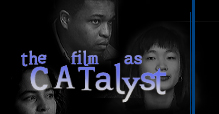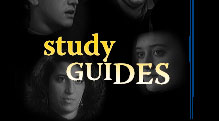Follow Up
Paying attention to issues of race and racism can greatly enhance teaching and staff effectiveness in working successfully with all students. Faculty and staff need to consider their own socialization as it interacts with that of their students, before they try to plan appropriate classroom or campus strategies. Their willingness to take action, usually following upon their increased self-awareness and empathy with others who are different, can lead to planning for a more inclusive curriculum and teaching strategies.
Some general principles for follow up may include:
- Encourage participants to set concrete, action-based goals
- Keep goals achievable within a limited time-frame
- Encourage participants to build support networks
- Remind participants that change takes place one step at a time and
that change requires a life-long commitment - Provide follow-up resources such as bibliographies and videographies. Well prepared, accurate, resource materials will help faculty and staff make the transition from their responses to SKIN DEEP to their interactions with students.
Strategies & Resources for Follow Up and Ongoing Activities
Organize weekly or monthly “brown bag lunch” discussions. These meetings could be used to investigate in more depth particular issues that have come up during the screening discussion, or they could be used as support and strategy sessions for individuals and groups doing anti-racism work. At Evergreen State College, following a screening of SKIN DEEP, the college instituted monthly lunchtime discussions. Each discussion was started by screening a brief 2-3 minute segment from TALKING ABOUT RACE, the companion video to SKIN DEEP. For information on TALKING ABOUT RACE see below.
Support the formation of a campus or community organization to work on issues of racism and multi-cultural alliance building. Or do the research to find out what organizations already exist and make this information available to participants.
After a screening of SKIN DEEP at Valdosta State College in Georgia, the students met to form a multi-cultural organization that would include sponsoring retreats similar to the one depicted in the film. They are currently working to gain recognition as an official campus organization.
For more in-depth activities, exercises, and discussion points concerning the issues raised in SKIN DEEP. consult our companion piece, TALKING ABOUT RACE.
TALKING ABOUT RACE consists of 2 short (12 & 13 minutes) video modules containing excerpts from SKIN DEEP, arranged by topic. It is accompanied by a comprehensive dialog facilitation guide, which includes complete descriptions of many interactive exercises. Besides being very effective for follow up discussions TALKING ABOUT RACE is also useful for classroom screenings and other situations where time is limited.
For information on ordering TALKING ABOUT RACE or SKIN DEEP, please call 1-800/343.5540.
The workshop portrayed in SKIN DEEP was conducted by TODOS: The Sherover Simms Alliance Building Institute. For information on TODOS please call 510/444.6448
We always like to know what sort of outcomes have resulted from screenings of Skin Deep. We encourage you to contact us at Iris Films by mail, fax, or phone to let us know of your experiences. Your feedback will help inform our work and allow us to modify suggestions we make to future discussion leaders.
Maurianne Adams is a lecturer in the Social Justice Education Program at the University of Massachusetts, Amherst School of Education. She writes and consults on faculty and student development. She has edited Promoting Diversity in the College Classroom (1992) and co-edited Teaching for Diversity and Social Justice (forthcoming).
Troy Duster is the Director of the Institute for the Study of Social Change and Professor of Sociology at the University of California, Berkeley, where he served as Chairman of the Department from 1986-88. He is the recipient of a number of research fellowships, including awards from the Swedish Government, a Guggenheim fellowship, and a Senior Research Fellow Award from the Ford Foundation.
Lorie Hill, a clinical psychologist, is chair of Psychothearpists Against Violence (PAVE). She created “Jump Start”, a violence prevention and unlearning racism/prejudice project for youth and adults. She is a member of the APA’s National Cadre of Experts on Violence.
Frances E. Kendall, author of Diversity In The Classroom, is a consultant on organizational change, specializing in issues of diversity. She has worked with hundreds of colleges and universities around the country. She has a Doctorate in Education from the University of North Carolina, Chapel Hill.
Mathew Ouellett is the Assistant Director of the Center For Teaching at the University of Massachusetts, Amherst and serves as a faculty member of the Smith College School of Social Work, Mathew is completing his Doctorate in Education. He writes and consults on teacher training and social justice issues.
Frances Reid is the Producer and Director of Skin Deep. She has been a filmmaker for over 20 years, producing and working on documentaries on social justice issues. In 1995 she was nominated for an Academy Award® for her film “Straight From The Heart.”
Sheri Lyn Schmidt is the Coordinator of Diversity Education at Texas A&M University. She is author of the “Talking About Race” facilitation guide which is distributed through Iris Films along with the videos of the same title. She has a Masters Degree in Counseling and Guidance from California State University.
Hugh Vasquez is the Director of the TODOS Institute, an organization that does trainings and consultation on diversity issues nationwide. Hugh Vasquez was the lead facilitator for the workshop featured in Skin Deep. He holds a Masters Degree in Social Work, is a licensed therapist in California, and is adjunct faculty at John F. Kennedy University.
Top
REFERENCES FOR FURTHER READING
Adams, M. (ed.), Promoting Diversity in College Classrooms: Innovative Responses for the Curriculum, Faculty, and Institutions, New Directions for Teaching and Learning, no. 52. San Francisco: Jossey-Bass, (1992). See especially: Hardiman, R. And Jackson, B.W. “Racial identity development: understanding racial dynamics in college classrooms and on campus.” Marchesani, L. And Adams, M.“Dynamics of diversity in the teaching-learning process: a faculty development model for analysis and action.” and Weinstein, G. And Obear, K. “Bias issues in the classroom: encounters with the teaching self.”
Duster, Troy, “The Diversity of California at Berkeley: An Emerging Reformulation of ‘Competence’ in an Increasingly Multi-cultural World,” in Thompson & Tyagi, eds., Beyond a Dream Deferred: Multicultural Education and the Politics of Excellence, Minneapolis: University of Minnesota Press, 1993.
Institute for the Study of Social Change, The Diversity Project, 1995, University of California, Berkeley, CA, 94720.
Kendall, Frances E., Diversity in the Classroom, Second Edition, New York: Teachers College Press, 1996.
Kivel, Paul, Uprooting Racism, Philadelphia: New Society Publishers, 1996.
McIntosh, P., “White privilege and male privilege A personal account of coming to see correspondences through work in women’s studies.” In M.L. Andersen & P.H. Collins (Eds.)Race, Class, and Gender: An Anthology, Belmont, CA: Wadsworth.
Ouellett, M. L. And Sorcinelli, M.D. “Teaching and learning in the diverse classroom: a faculty and TA partnership program.” To Improve the Academy, 14, 1995.
Romney, P., Tatum, B. & Jones, J., “Feminist strategies for teaching about oppression: The importance of process”Women’s Studies Quarterly, 20 (1&2), 1992.
Tatum, B.D., “Teaching white students about racism: The search for white allies and the restoration of hope”Teacher’s College Record, 95 (4), 1994.
Terry, Robert, For Whites Only, Grand Rapids: Eerdmans Press, 1970.
Vasquez, Hugh & Femi, Isoke, No Boundaries: A Manual for Unlearning Oppression and Building Multicultural Alliances, TODOS Institute, 1995, (510) 444-6448.
Wise, Tim J., Little White Lies: The Truth about Affirmative Action, Twomey Center for Peace through Justice, Loyola University, Box 12, 6363 St. Charles Ave., New Orleans, LA 70118, 504/861-5830. Can also be purchased ($5.00) through Speak Out at 510/ 610-0182.
This study guide is written by Hugh Vasquez, with contributions from Maurianne Adams, Mathew Ouellett, Frances Reid, Troy Duster, Frances E. Kendall, Sheri Lyn Schmidt and Lorie Hill.
The publication of this study guide is made possible by a grant from the Ford Foundation.
This study guide is written by Hugh Vasquez, with contributions from Maurianne Adams, Mathew Ouellett, Frances Reid, Troy Duster, Frances E. Kendall, Sheri Lyn Schmidt and Lorie Hill. The publication of this study guide is made possible by a grant from the Ford Foundation.






